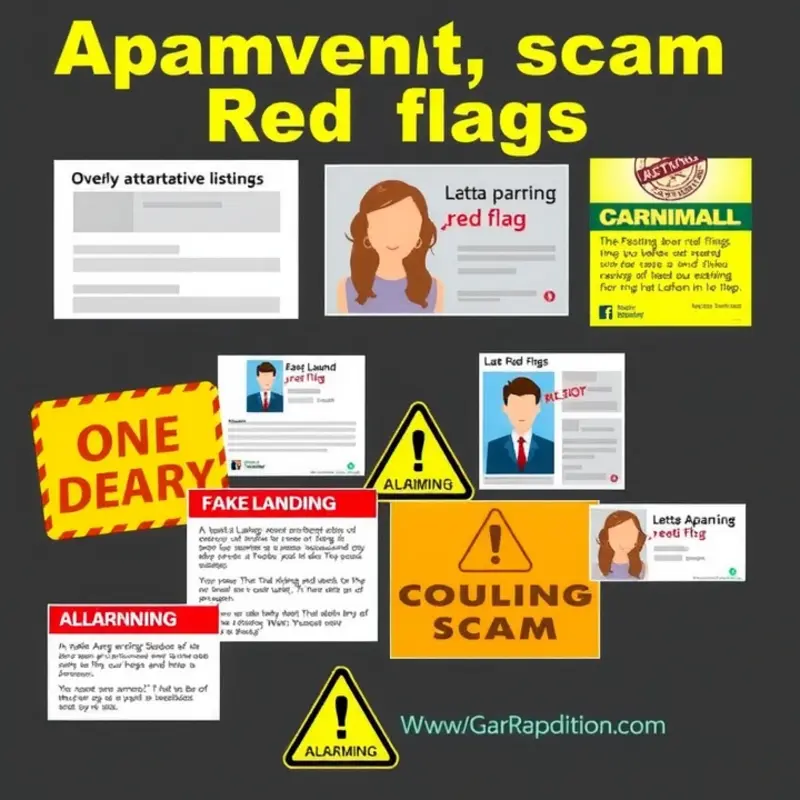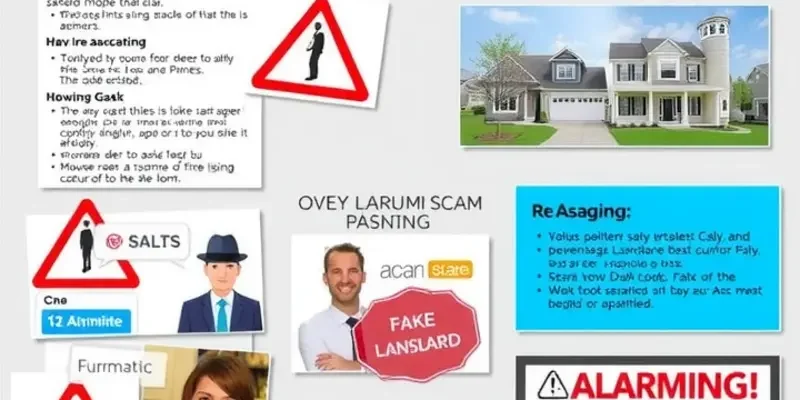Navigating the world of apartment rentals can be intimidating, especially for young professionals, first-time renters, students, couples, and families. The thrill of finding a new place is often overshadowed by the looming threat of scams that can jeopardize your financial stability and peace of mind. Scammers are becoming increasingly sophisticated, taking advantage of inexperienced tenants who may not be familiar with red flags. Understanding these tactics is crucial to protecting yourself and your finances. This guide delves into practical strategies tailored for you, offering clear insight into the common scams that target renters, techniques to ensure your safety, and concrete steps to follow during your apartment hunt. Knowledge is empowering, and by equipping yourself with the right tools, you can confidently navigate the rental market knowing that you’ve taken steps to shield against deception.
Recognizing the Red Flags

Apartment hunting can sometimes feel like navigating a minefield, especially with scammers lurking to take advantage of unsuspecting renters. Recognizing the red flags is crucial to keeping your finances and personal information safe while you search for a new home.
One common tactic used by scammers is advertising non-existent or already rented properties at unbelievably low prices. It’s tempting to believe you’ve stumbled upon a hidden gem, but if a deal sounds too good to be true, it often is. Scammers often cut corners by using generic photographs of apartments that can be found on various real estate sites. Conducting a reverse image search can reveal if the photos are lifted from elsewhere.
Additionally, scammers might claim that they cannot show the apartment in person due to being “out of town” or for some other obscure reason. They will propose sending you the keys after receiving a deposit. Always insist on visiting an apartment personally or having a trusted person do so on your behalf. If in-person visits are impossible, opt for a trusted virtual tour that also allows you to assess the apartment’s condition and confirm its existence.
Be wary of landlords or property managers who rush you into making decisions or transferring money. This pressure tactic is designed to get you to act without fully considering the lease terms. Genuine landlords will allow you time to make an informed decision. Additionally, they should be willing to provide appropriate documentation, such as a legally compliant lease agreement and proof of property ownership.
Communication is key, and it can uncover more red flags. Look out for broken English or consistent grammatical errors in emails. Many scammers operate internationally and these communication elements can be a tell-tale sign.
Secure payment methods form another robust line of defense against scams. Avoid any transaction that involves wiring money, as this is often untraceable. Opt for secure payment methods that offer buyer protection and avoid transactions in cash or through unfamiliar payment apps.
Beyond these general warnings, students and young professionals should be particularly cautious about subleasing and shared accommodations. While these can be cost-effective options, verify that the person you’re dealing with has the legal right to sublease the property. Cross-reference their claims with the landlord or property management company.
Protecting your personal information is paramount. Scammers might ask for extensive personal information upfront, like your social security number or bank details, before any formal agreements are made. Legitimate landlords will typically request only a completed application and will provide a secure means for data handling.
In seeking a safe rental experience, being informed and vigilant is your best protection. For more practical advice on what to do once you’ve found a legitimate listing, visit Apartment Move-In Essentials. This guide can help you feel more confident as you begin your journey in a new rental home.
Protective Measures for a Safer Rental Experience

When navigating the apartment rental market, applying a few protective measures can significantly reduce the risk of falling prey to scams. Start by verifying listings. Ensure each rental listing’s legitimacy before expressing any interest. Fraudulent listings often use copied images or descriptions from legitimate ads. Conduct a reverse image search to verify photo authenticity. A quick search of the property address can also unveil duplicate listings or warnings from previous victims.
Transparency with landlords is essential. Always request to meet the landlord or property manager in person. If they insist on conducting all communications online, consider this a red flag. Equally critical is visiting the property in person before any financial transaction. Genuine landlords will be willing to facilitate a tour or have a representative present.
Ensure you have comprehensive lease agreements before handing over any payments. A genuine lease should include details about rent, lease duration, maintenance terms, and policies unique to the property. If the lease seems too generic or lacks essential specifics, question its authenticity. Furthermore, landlords should be transparent about deposit terms and conditions. Avoid paying in cash, wires, or through untraceable methods.
Leverage technology to bolster security. Use online rental platforms that offer tenant protection programs, which often include verifying advertising landlords and secure transaction services. You’ll have a layer of assurance knowing your funds are secure until the rental agreement is rightly executed.
Online reviews can be insightful. Check multiple platforms to assess a landlord’s reputation or a building’s maintenance history. Ensure you’re reading reviews from legitimate tenants and not fabricated accounts. Be skeptical if all reviews seem overly positive.
If you encounter suspicious activity, report it immediately. Report scams to local law enforcement and the Federal Trade Commission (FTC). By notifying authorities, you’re not only protecting yourself but potentially preventing others from falling into the same trap.
An education in renter’s rights and responsibilities empowers you to counter scams effectively. Each state has specific landlord-tenant laws, which you should familiarize yourself with to spot discrepancies in what landlords may falsely claim.
For additional peace of mind regarding safety and maintenance concerns, consider reading about apartment radon safety. Understanding environmental health factors is another angle to ensuring a secure rental experience for you and your family.
Engage with tenant forums online to share experiences and gain insights from fellow renters. Conversations with other renters often reveal ongoing issues in particular areas or current scams.
By adopting these informed approaches, you can enhance your apartment search process, ensuring you and your family engage in a safe, secure, and scam-free rental experience.
Final words
The journey of renting your first apartment should be as exciting as it is rewarding, free from the dread of falling victim to scams. By recognizing the red flags and employing protective measures, you empower yourself to take control of your rental experience. Remember, knowledge is your strongest ally against deceitful practices. If ever in doubt, consult with trusted resources or professionals who can guide you. Feel confident in your new home—not just in its walls, but in your ability to secure it. Access to a safe and welcoming environment is a right you deserve, and staying informed is the first step toward achieving that.









